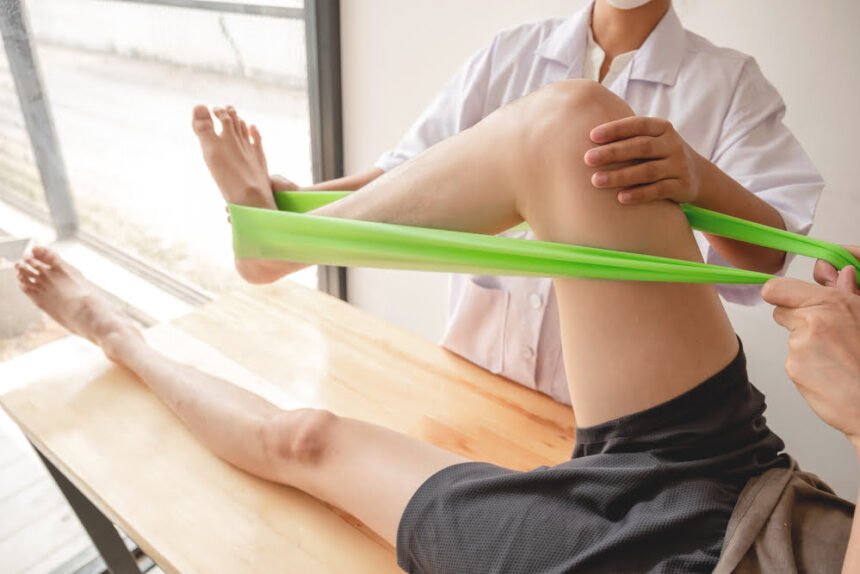Have you recently suffered from an accident? You certainly are not alone. The American Association for the Surgery of Trauma reports that there are 3 million nonfatal and 150,000 fatal injuries each year. John Hopkins estimates those figures are 30% higher.
The recovery process can be painful and frustrating, especially if you don’t know what you are supposed to be doing to make it more manageable.
The good news is that there are plenty of things that you can do to aid the recovery process. Keep reading to learn more.
How Can You Recover from Your Injury More Quickly and with Fewer Complications?
Don’t be reckless when you have just had an accident. You will have a much easier time recovering from your accidental injury if you follow these tips.
Make Sure that You Stay Hydrated
It is very important to stay hydrated when you have had an accident. The biggest reason is that the body needs to send blood with oxygen to the wound to help repair damaged tissue. If you are dehydrated, it will be a lot harder for blood to flow through the body, which means that you won’t get sufficient oxygen to repair the wound.
There are other benefits of getting enough water as well. It will help improve skin integrity by preserving collagen, which will minimize damage to your skin tissue.
Get Plenty of Sleep
Sleep is also very important when you are recovering from any injury. Your body releases growth hormone during the third stage of the sleep cycle, which is used to repair damaged tissue.
Sleep can even help with the recovery of traumatic brain injuries. A recent study from Oregon Health and Science University showed that it is especially important for people with brain trauma. The researchers stated that you should eat foods that don’t disrupt your sleep and get enough exercise to rest through the night.
Follow Proper Pain Management Tips
You also want to make sure that you manage your pain effectively. This is going to require you to take anti-inflammatory drugs and possibly harder medication like morphine. You may also want to try meditation and a variety of other pain management tips.
Follow the Tips Laid Out by Your Doctor
You should also carefully follow all of the advice your healthcare provider gives you. You don’t want to do anything that can exacerbate the injury, so listen closely to their feedback.
Make Sure You Get Compensation to Cover Your Medical Bills
We also wanted to make sure we cover the importance of getting coverage for medical costs. This is a topic that deserves a section of its own.
When you suffer injuries due to an accident caused by someone else’s negligence, you may be entitled to receive compensation from that party or their insurer. Among the items that you can claim are economic damages. These cover your medical expenses, which, depending on the severity of your injuries, may include future medical expenses as well. Economic damages may also include the wages you have been unable to earn while your injuries keep you from going back to work, as well as future earnings if you end up with a permanent disability. Other quantifiable items, such as money to get your damaged property repaired or replaced, might also be included.
Besides economic damages, other damages that are much harder to quantify can also be included in the claim. These are defined as non-economic damages and include such items as emotional distress and pain and suffering. However, defining what qualifies as pain and suffering is not easy, and attaching a monetary value to this is quite complicated as well.
Pain and Suffering Defined
Pain and suffering is a legal concept that includes both the physical and emotional pain that a victim experiences because of an accident. Here is how each affects you after an injury:
Physical Pain and Suffering
The physical pain you experience after being injured may become permanent and chronic, lasting for months or even years. There are many injuries that can be associated with long-term pain and suffering because of the damage they cause to vital parts of the body. These may include:
- Traumatic brain injury
- Back pain
- Neck pain
- Nerve damage
- Paralysis
- Damage to internal organs
- Fractured bones
- Headaches
It is common for these conditions to last for years, in some cases becoming permanent, resulting in a lifetime of pain for the victim.
Emotional Pain and Suffering
Accidents are traumatic experiences that require good self-care tips. This means that even in cases where a passenger in your car is severely injured, you may also experience emotional pain. And when you are the injured party, this type of pain can be even more debilitating. Emotional pain and suffering can transform the sufferer’s life for years to come and may also become permanent. Some examples include:
- Fear
- Insomnia
- Psychological trauma
- Anxiety
- Stress
- Grief
- Decreased cognitive abilities after a head injury
- Loss of quality of life
- PTSD
From being unable to return to where the accident occurred to staying in bed, unwilling to face the outside world, the range of feelings and emotions that an accident victim may experience can be quite debilitating. It could end up ruining their life as they knew it before the accident.
Loss of Consortium
When the accident results in the death of a loved one, their family members may bring a wrongful death claim against the negligent party who caused the accident. The purpose of this claim is to recover the cost of the medical and burial expenses of the victim and provide compensation for wages lost and loss of consortium.
In this case, the pain and suffering is not experienced by the victim but by their relatives who may be wallowing in grief due to an accident that might have been preventable. The person who died might have left family members without:
- Parental guidance
- Care and companionship
- Love and affection
- Spousal intimacy
- Household services
Other items may also be added to this list, depending on the circumstances of the case.
How is pain and suffering calculated?
It is clear that attaching a figure to pain and suffering is not as straightforward as simply adding up medical bills. A personal injury lawyer can help the victim or their family members calculate this with the help of an insurance adjuster using one of the following methods:
Multiplier
Once your lawyer has calculated all the economic damages associated with the case, they will multiply it by a number to cover pain and suffering and other non-economic damages. The multiplier will be a number between 1 and 5 and depends on the extent and severity of the injuries.
Per Diem
In this method, a dollar amount is assigned to every single day from the time the accident happened to when the victim reaches a point of maximum recovery. This happens when a medical professional considers that the victim’s condition will not improve further.
How do you prove pain and suffering?
It is not just a matter of stating that you are experiencing pain and suffering. There must be evidence and documentation to support this claim. This can include notes from your doctor, personal journals documenting the pain, pictures, notes from therapists or mental health counselors, and others. The more evidence that can be provided, the easier it will be for you to convince the insurance company or the judge or jury of the impact it has had on your life.










